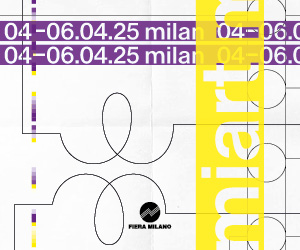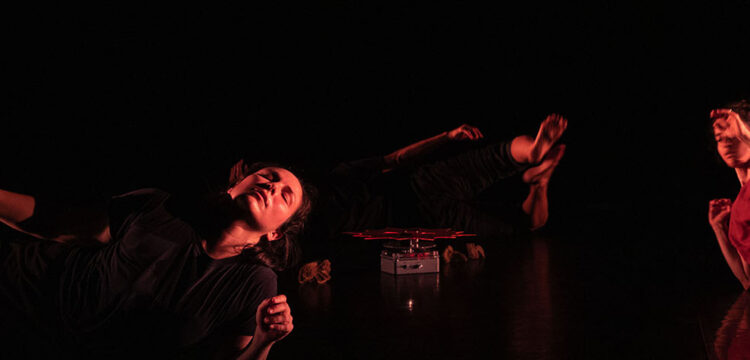A City for All
“What happens when young people take the power?”
FUORI! is an experimental project dedicated to the adolescents of Bologna, promoted by the Municipality of Bologna, realised by Emilia Romagna Teatro ERT / Teatro Nazionale and curated by Silvia Bottiroli.
Leslie Kern’s Feminist City speaks of a “city of men” referring to the fact that today, still and after all, men are writing about, thinking of, and designing the urban space according to their own experience of it, which is considered the “norm”. Anything that doesn’t fall under that norm is excluded and this mindset causes a shift that prevents many subjectivities from finding a space that would suit their needs and desires.
I move throughout Bologna in the steaming heat, among tourists, food, food, again mostly food, in the comfort city where everyone says it became impossible to find a house at a decent price. I am here for Fuori! a festival curated by Silvia Bottiroli for ERT – Emilia Romagna Teatro, which inhabited several places in Bologna from June 6th to 11th. Fuori! is not simply a festival but emerges as a double-faced soul of a path where several artists working in the international and local scene had the chance to collaborate among themselves and also with a group of local teenagers. Fuori! is a bridge of gestures, of the punctuation that will stem from the festival days.
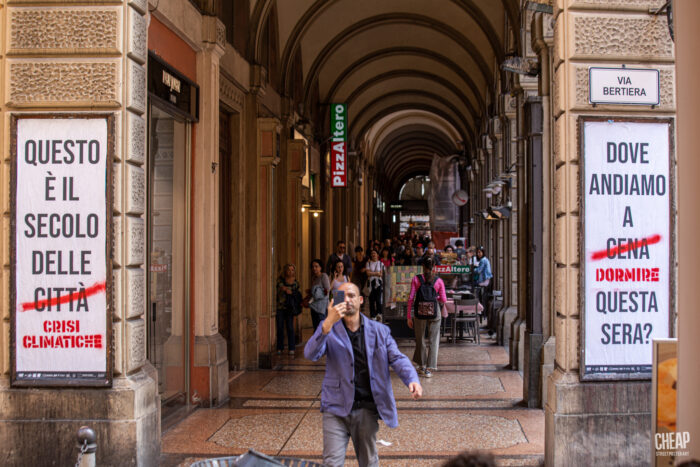
The base is Piazza S. Francesco, next to via del Pratello, a key area in the city. The square has an ever-changing, always alive atmosphere, with kids playing in the afternoon and teenagers spending time at night—summer has come and the squares are always full. Fuori!’s two main poles are: a container, that is something more than an info point as it welcomes the program’s talks and meetings, and a trailer, the space of the TRANS*CAMP designed by Cheap, a collective based in Bologna working with poster art who also curated the project ATTRRRRITO, and Coco Guzmàn, an artist who lives and works in Madrid. This space is an imaginative camp born in connection with one of the works of the festival, Lucciole by Blue Motion and Giorgina P. The transgenderization of the public space moves through presence, dialogue and collective doing, with silkscreen printing workshop, pins making, dj set and talks—“we have always been here and will always be (…) now we’re camping and it is just the beginning” the curators say in a joyful living that reflects upon those who have always written the city over an otherwise that already exists although sometimes lacks a space to turn into collectivity.
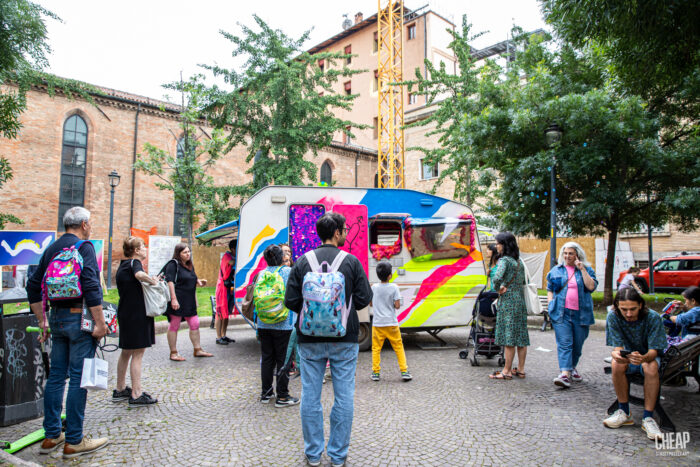
From the middle of the square—between the container and the roulotte—the Nightwalk with teenagers by the Canadian company Mammalian Diving Reflex takes off. It is the third night walk realized in Bologna for Fuori! after a residency year during which the company has collaborated with three local artists, namely Eva Geatti, Agnese Cornelio and Manuela De Meo. We cross the city center and stop at several locations chosen by the teenagers/protagonists, resignified through actions they propose to share with the audience—come closer someone and tell them what criminality is to you, catwalk as if you’re on a runaway, sit and eat a lollipop which turns your tongue blue, wear headphones to listen to our conversations. Everything is overturned, through a silent agreement. Bologna is oddly empty and the feeling is to get back the city, to let go, and above all to concede your time to a group of teenagers who are leading a group of adults, taking up space to tell how they are doing. Quoting Muraro, Bottiroli speaks of authority as the “relation that allows to be potent with no means of power.” We are in that area where a meeting is possible, so it is to rewrite and rethink given rules. We end our night walk in Piazza VIII agosto with a match of police and thieves: who wins?
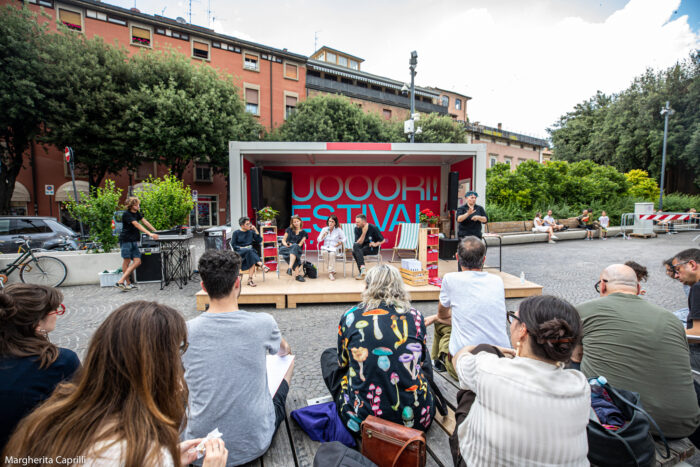
If during the night walk human bodies took back some city space, from the beginning of June one can cross Bologna following MAI+ artworks’ route. MAI+ is a work by artist F.De Isabella with Lele Tori’s dramaturgy, commissioned by project FUTURA, conducted by Fuori!’s working group and the Foundation for Urban Innovation in collaboration with a group of students from several high schools in Bologna. De Isabella and Tori have started off with the question: who decides what is art and what not? A museum in/of the public space was born, a research on some signs in the city that became artworks. As De Isabella wrote, it was the storytelling around these signs which conferred the status of work of art to the chosen sign. A reflection on the power of narration that is not merely a conceptual process, but a manifestation of some subjective feeling, of a subjectivity who experience systemic oppression and violence daily.
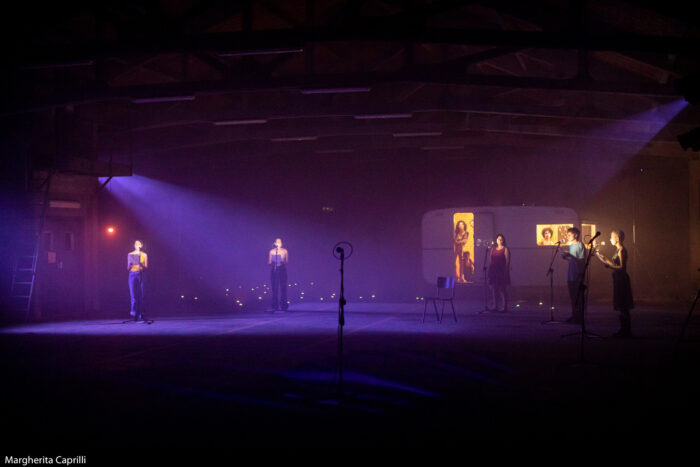
Close by one of the works of the MAI+ catalog, Scavi (meridiana Merico), the ex Church S. Mattia hosted Body of Knowledge by Samara Hersch, who collaborated with Muna Mussie and Donatella Allegro for the Italian version of the work. In this case we find ourselves outside the public realm and we are invited to reconquer the space and time of the conversation. The first gesture we do as an audience is to give away our phone, and we get another in exchange where we get whatsapp calls. “It’s me N. May I ask you some questions? What is family to you?”—“I am E. I am 12 years old. Why do adults think that it’s up to us young people to solve the issue of climate change?”—“It’s me, E. I’d like to know if happiness goes away with time.” I’ve never ever felt so disarmed. As it already happened several times during Fuori!, the rhetoric of participation, which is usually not that effective, is once again disrupted by the presence of teenager voices that are posing urgent questions, while managing the conversation, renovating that silent agreement we experienced in Nightwalk, in an experiment to subvert one constituted order and rely on younger people.
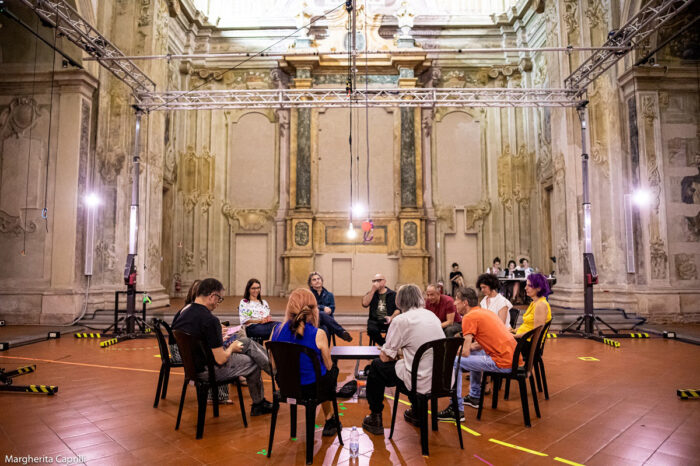
While we are busy on the phone, between one question and another we’re given tasks to set up the space for a teenage party, while we have been asked in advance to send a song we used to listen to when we were teenagers ourselves. They all end up in a playlist to be shared later. Actually, more than answering questions I have the feeling I am sharing an inner journey with others—I hope I didn’t disappoint E. by telling her that I haven’t changed much since my 12th.
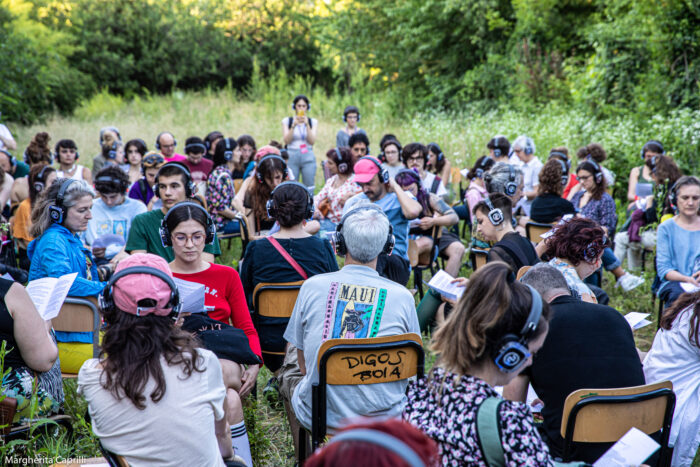
“Nello sciame di api si trova il percorso”—in the bee swarm one finds a path. This sentence appears on a billboard with the portrait of Emily Dickinson in Piazza S. Giuseppe, the starting point of Percurso, a work by Carolina Bianchi and Cara De Cavalo, a theatre company that was formed in Brazil, although some of the components are based in Europe. For the first time in Italy, their presence has been accompanied by Valentina Medda, Francesca Penzo and Lucas Delfino’s workshop, which has involved a group of young women and non-binary people. The main theme is gender violence, an issue that is being tackled by the trilogy Cadela Força, soon debuting at the Festival d’Avignon. Few days before the beginning of the festival, I interviewed Cara de Cavalo’s Carolina Bianchi and Marina Matheus.
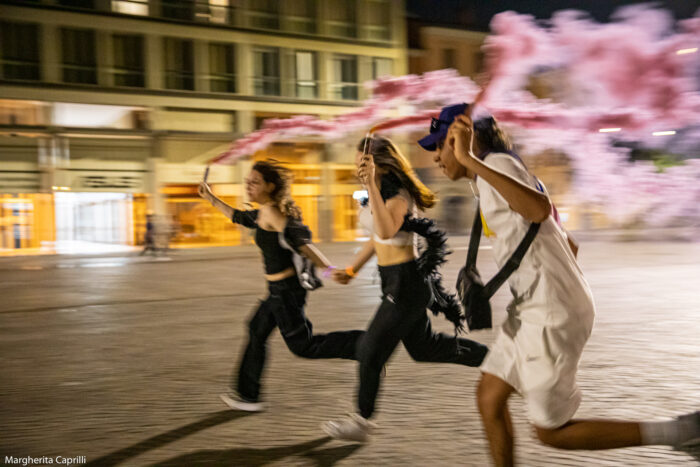
Paola Granato: Gender violence is an issue you faced also in your company works and you did it also through some artist figures such as Pippa Bacca and Artemisia Gentileschi. How did you start working on such matters and what perspective brought up the connection with these two artists?
Carolina Bianchi: To deal with gender violence means to deal with life. It has to do with my own life, with the way I see the world, with the fact that I have always lived with violence and I believe these works we are making since a few years have to do with confabulation, with the creation of new images for this violence, with the creation of new modalities of speaking of and thinking through these violences. There is something specific in a thought that stems from the signs on a body. Violence for me is a map that shapes a body, it has a narration inscribed in that body. In these works, these issues on violence are coming from the attempt to map through the imagination of these signs on the body, and from the fact of having been born in a country where the index of violence over gendered and feminized bodies is really high, so we couldn’t really speak about anything else.
Marina Matheus: I believe that there’s something about the relation between images and imagination, in regards to this topic, as corporeality manages to transform something. There is something that intrigues us, like how violence operates in bodies and in the imagination, something that unfolds infinitely and expands moral boundaries. It is something that all feminized bodies experience and so we could speak of nothing else.
Carolina Bianchi: It has something to do also with the question about the artists we have invited, somehow, to be present in these works. I think that the way we work with them is not simply a quote from their lives, but it is more like a duty, and this duty is something really close to friendship, in the way they’re present in the work. How can we have a conversation with Artemisia and the images she makes?
In our practices we work a lot with the notion of nonlinear time. It is something we did in many works of ours, to bring the idea that one can almost travel in time through imagination, that one can almost touch something that has happened many years before. This has to do also with the historical vision proper to patriarchy, meaning that history can be only told in a linear way. Instead, this disobedient manner of looking at time draws us closer concretely toward these characters. When I say that I work with Artemisia Gentileschi I really mean it, I really think she’s present and we’re working together. For me facing a work means also to draw the connections with many references coming from different moments in history. What if Mary Shelley and I would work together on this show? What do we want to ask of these figures, to their energies, words, images they have created in the work we have done? What does it mean to materialize it in a specific moment in time, in this show? It is not a generic question, and it has to do with one of the more urgent aspects of the work, writing, that becomes less solitary. When I say that I have created a great relationship with Emily Dickinson it sounds crazy but for me it’s true, she’s someone you have read, one of the voices of your work, an important one. The meeting with Pippa Bacca was a profound one. I have been obsessed about her story, to understand what kind of work she was doing. It wasn’t about her death but about understanding the differences between us and what brings us closer. How we look at the history and at the biography of these women, without limiting ourselves to consider the most basic facts. But rather think truly about her work, to manage to ask certain questions: do I like her work? What would I have told her if we met? This kind of relationship.
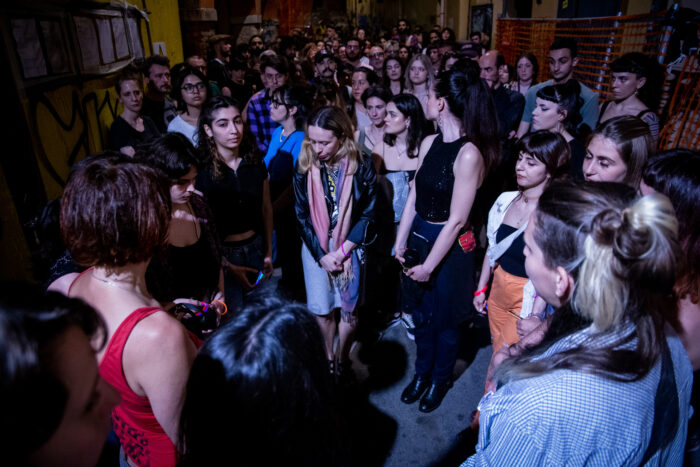
In Bologna you worked with young women and non binary people, what kind of practices have you developed with them?
Carolina Bianchi: We exchanged stories about violence, sexual abuse, sexual violence but also we see how to share these stories and what strategies we enact to survive. Everyday we have a life that includes some survival strategies, like not walking alone at certain hours, in some streets, taking an Uber, dressing in a specific way, speaking in another…
After years of working on Cadela Força, it is the first time we hold a workshop, and we’re finding out now what it means to collectivize such experiences of pain and violence, experiences that are meant to be lived in silence and should die within the household walls. The Cadela Força project opens up such a space. To me, the great issue is how we speak, how we tell stories, and how we listen, how we feel. It takes some training. Listening is like a job, there’s always something to the fact that we’re never ready, we’re never ready to listen to this kind of story, we’re not ready to talk about it. I’ve understood that for a long time I couldn’t speak of something that happened to me because first of all I wanted to forget and I thought that would be too heavy for my friends to carry. There was never a moment, never a way to say it. I believe in this process to collectivize stories, because stories are changing and pain doesn’t get lost, one can’t heal the pain but we manage to treat and touch the story in another way, so that these stories stop being so suffocating and can move from other bodies and other experiences. It is something that acts, I feel.
Who have you met in these workshops?
Carolina Bianchi: Wonderful people who have established a beautiful relationship with each other, eloquent people who are thinking a lot about gender, and cities. Students in the fields of philosophy, cultural management and art. Everyday they’re dealing with these issues, as all of us, although they didn’t come because they had terrible experiences but because they were interested in the exchange. It is like building a group that practices some self-defense techniques through being together and speaking of such matters.
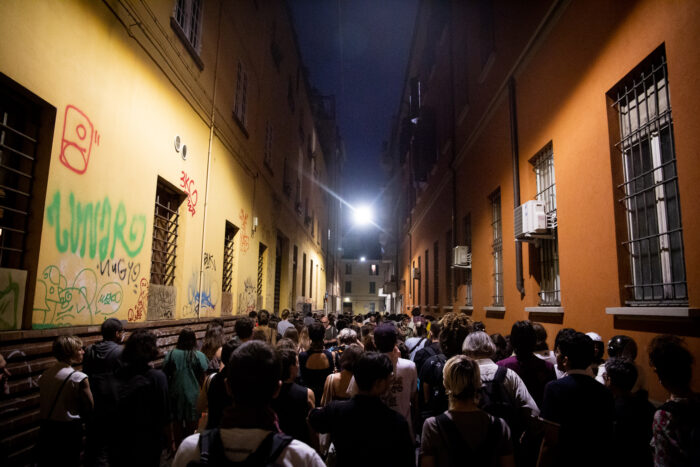
What have you learned from them?
Carolina Bianchi: A lot, I think there’s an opening in getting to know each other and being crossed by the story of a person you just met but can recognize yourself into. There’s an opening in this group that teaches me some sort of availability to open up to people you’re meeting and getting to know, understanding that there’s something really strong and powerful about it.
Marina Matheus: There’s something about autonomy, they’re showing us their autonomy in regards to their matter, their interests, their stories and this is such a beautiful thing because it’s a temporary community in which stories, ideas and thought are meeting and entangling in a non-dramatic way. It is very interesting, indeed, to see the way they and we are autonomous when we touch upon this matter. We’re very happy to see the colors of these meetings, very vibrant, very objective and full of care.
You speak of sisterhood, what does it mean to you?
Carolina Bianchi: In Cadela Força one of the issues is to understand what that is. I can’t tell yet, I have some cues, but for me there is an obsession at the moment to stay with these words—also in Percurso, so to say. For us knowing the linguistic codes of existence in masculine brotherhood, it is easier to understand that it is quite difficult to shape a sisterhood, so it is necessary to understand how that could be. I have many indications to think that sisterhood can be everything in reality, and to be in sisterhood can represent a whole existence, a great way to live.
Marina Matheus: I believe there’s a shift in perception: more than in opposition to brotherhood there is this idea to be able to face the language of patriarchy and to a certain extend it is difficult to look at another language, another way to relate to others, when it comes to gender or non-gender issues. In this shift of perspective we can ask ourselves what are the codes of our relationships, among non-cis hetero-normative, which one already exist, what are the codes we’d like to create and establish, what kind of codes we perceive in the cities or other places we inhabit, since I live in a farm at the moment—for instance. What kind of places do we want to build? How these architectures and landscapes are when we consider these linguistic and relational codes.
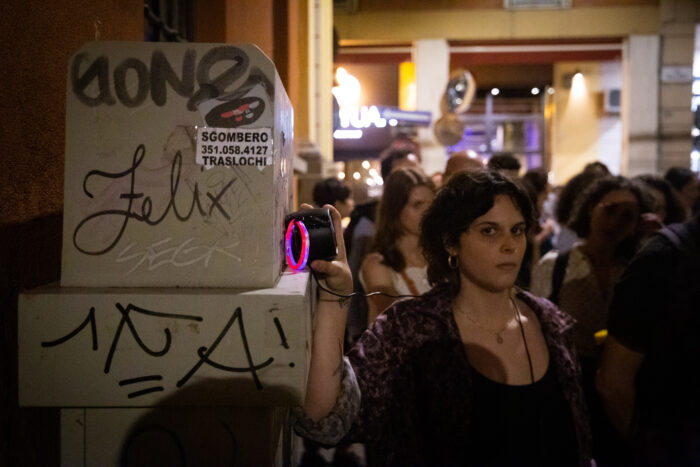
How can theatre intervene on these matters?
Carolina Bianchi: When it carries along some important themes, such as gender violence, there’s the idea that theatre should contribute with some solutions. What would justify a work on these matters is to propose some solutions or to demonstrate the fact that we’re righteous on the right side. For me theatre is not a way to save the world, the theatre we make doesn’t even save us, for us theatre is also a way to generate tension and turbulence, because this is all too complex. I don’t have solutions, I am immersed in fighting those images and those stories, in touching a nightmare, and at the same time theatre gives us the chance to create different images for these issues, to create another body to touch upon these topics, and there is a process of transformation there which I find compelling. I am interested in the possibility that theatre gives to embody the characters, a way to represent problems through poetry. The language of poetry is what interests me. What I can do is to speak of these things through the language of poetry, since I also speak of things that are all mixed up.
Marina Matheus: There’s something that has to do with understanding this performativity and the themes, when we bring them on stage not as something to be done, it’s less about the action—although there’s some action, but it’s always in relation and in the perspective of the destabilization of the order of speech. It is a matter of what is revealed once these issues get in contact with one another when we perceive what’s around them, what kind of memories they are triggering and what emerges, more than trying to do something about it.
Carolina Bianchi: It’s never about reaching something, we don’t know what is going to happen, even our political imagination is very tight—even ours. So it would be a pity to set a frame or a boundary to these arguments and to try to have a goal. We would lose the opportunity to surprise each other with what these relations can bring about and move us. To me, works such as Cadela Força already did their job before their debut, because they’re changing many things between us. It is important for the work to have enough space for its own autonomous life.
What have you discovered about Bologna?
Carolina Bianchi: I live in Holland and to be here in Bologna feels like being closer to home. In Italy I have a very familiar feeling and at the same time the antiquity and these specific shapes of the city make me feel like I am in a painting. Something happens when I walk over here. It’s the same thing we said about time, there’s a mix that is almost aggressive, of temporal stratification, that I find strong and beautiful and suits me very much. To see the city from the perspective of this work we’re making, we came often during the past year to see the city from the perspective of Percurso, to look for places and understand the spaces to choose, thus I believe that my gaze on the city has several layers, I have the images of the city of Bologna, of these porches, of the marble stirred with the sky, and the ice of Percurso, with the idea of an antiquity that is present, but also Pasolini… many things are coming through, it’s a city I love very much.
Marina Matheus: I lived in Sao Paulo for more than ten years, and my relationship with Europe is quite recent, I’ve never been in a city this ancient before, it’s my first time in Italy and as Carolina said, there’s something of Sao Paulo here, pigeons are the same and different from the English ones—all of this activated my curiosity on the way urbanization and the building of the city was done. By being in such an ancient city I’ve understood a bit more of how people used to organize their space and have created this crazy concept of the city. It differs from a colonial process. In regards to this mix of temporality, I feel that there are many contradictions. Even the processes of violence have formed in my perspective of a person coming from Brazil, who lived these things in a profound manner, and suddenly found the origin of these processes.
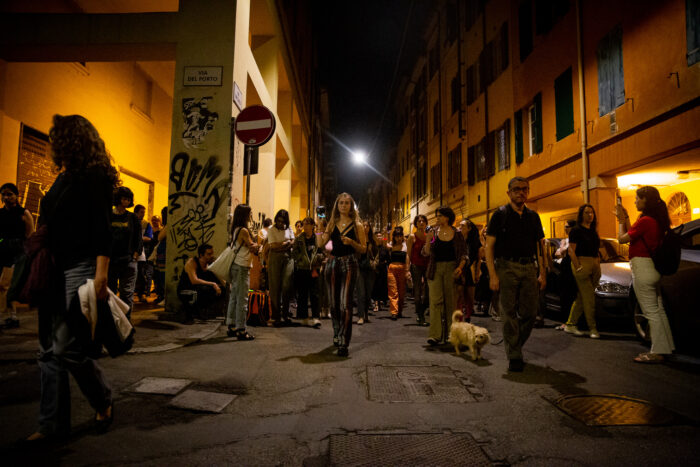
With Carolina Bianchi and Marina Matheus we leave with the promise to meet again in Bologna, and so it is. I take part in their meeting where all the themes we touched upon are brought up again. The audience is an important aspect of the work: how do we listen to these stories? When I witness the performance I experience that sharing of responsibilities Marina Matheus talks about. We follow the performers who are holding some small speakers playing voices speaking in tongues, telling stories. The fragmentation given by the public space and the people we are with can defeat the hesitation toward the narration, the part for the whole avoids sensitivity, and throws us in the support of a situation—more than a performative transit, and few words are enough to recompose a story and to deeply understand what that is about. Like a swarm behind bees we compose and decompose a clumsy choreography that ends all of a sudden the same way it began, with words turning into loud buzz and the performers fading in different directions. Nothing spectacular. A technique of storytelling to apply to one’s life—as we say to a friend at the end of the performance—a technique to get someone to listen, and to let something out in the open of the public space, what usually doesn’t get out of our own body even, since it’s stuck in a norm that is not for all.
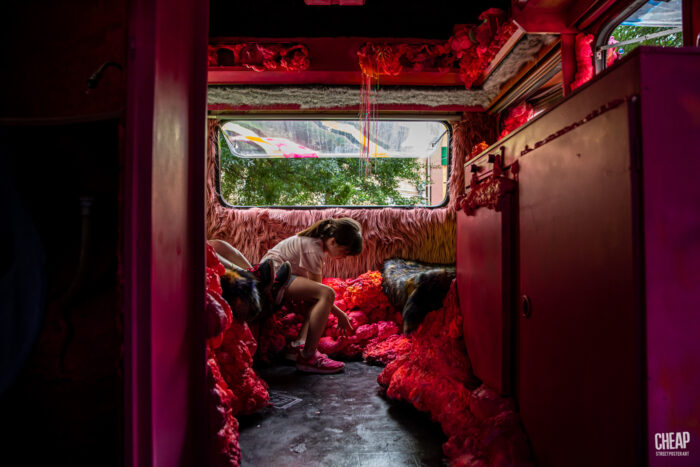
I leave Bologna with the feeling that these days a map has been rewritten, even on a personal level, I have lived ordinary spaces through another gaze. As if for me the temporal stratification mentioned above by Carolina Bianchi would open up to a generation I usually don’t attend but wish to know better. Their archive of places, stories and visions built together with people who have led the way and allow themselves to follow.
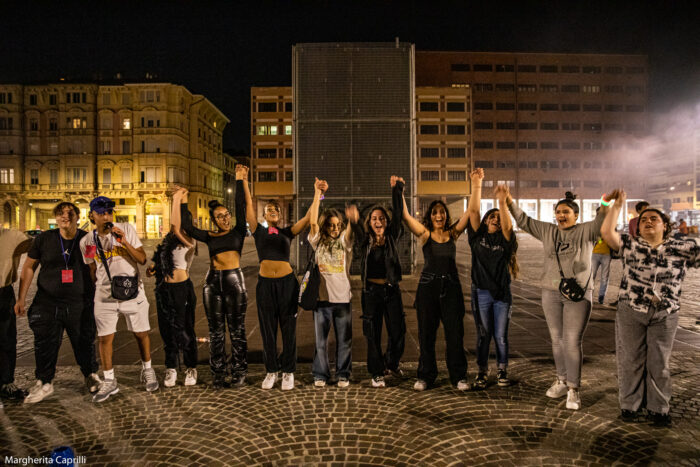
When it comes to the collaboration with teenagers, as the tip of an iceberg, the articulate formation project that is Fuori! have brought about an unprecedented perspective into the Italian landscape, while it worked subtly in the mesh of the city, by giving a confrontational space to both participants and artists and articulating a discourse on art and its most profound meaning.


